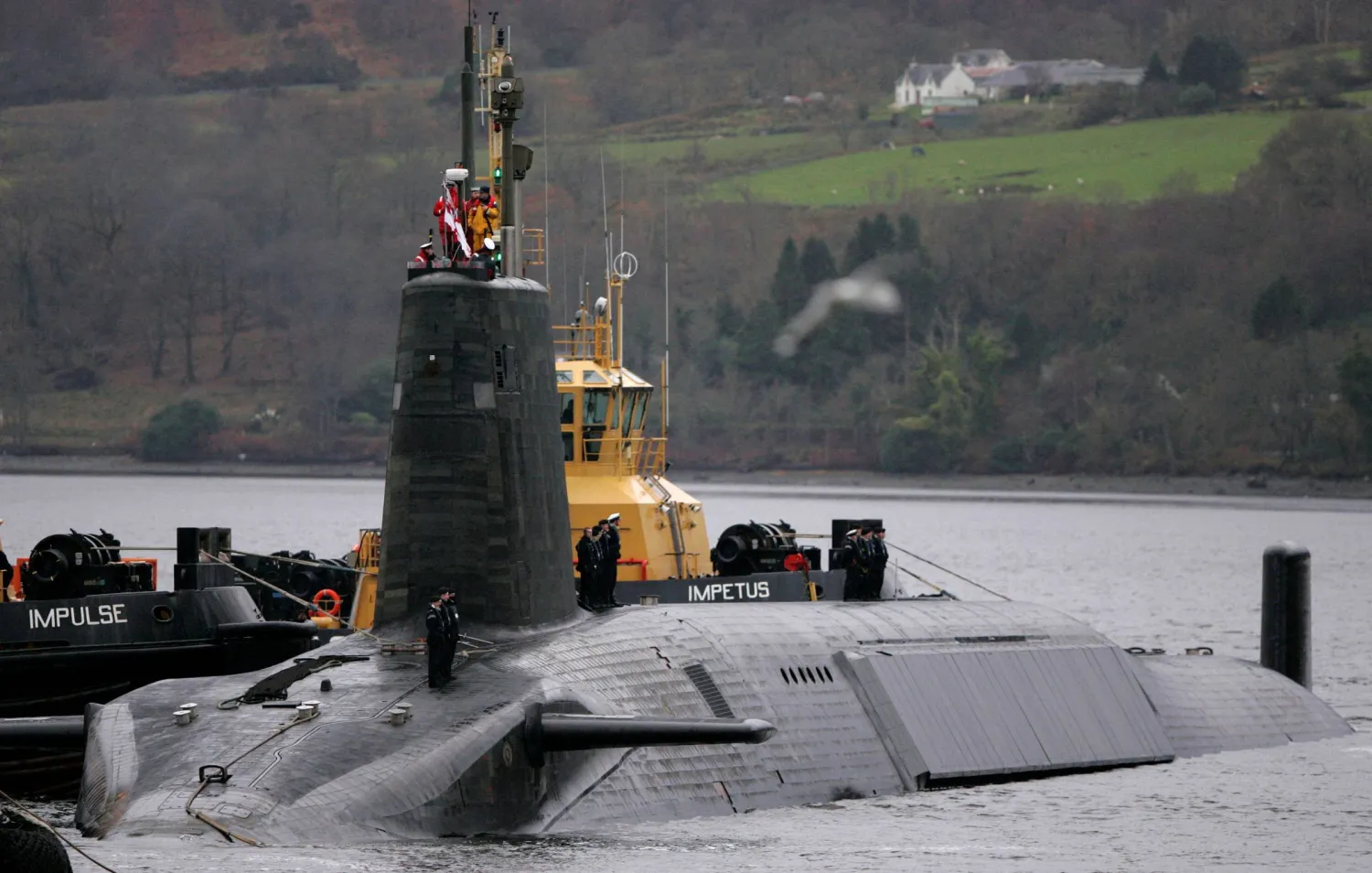Britain's Trident nuclear deterrent system misfired during a test last month, when a missile crashed into the ocean off the Florida coast near the submarine that launched it, The Sun newspaper reported on Wednesday.
The Sun said the first-stage boosters on the missile, which was equipped with dummy warheads, did not ignite during the Jan. 30 test, Reuters said.
The Ministry of Defense said an anomaly occurred during the test but that the failure had no implications for the wider system.
"As a matter of national security, we cannot provide further information on this, however we are confident that the anomaly was event specific, and therefore there are no implications for the reliability of the wider Trident missile systems and stockpile," the MoD statement said.
"The UK's nuclear deterrent remains safe, secure and effective," it added.
The failures of the Trident tests are likely to exacerbate concerns over the readiness of Britain's navy in the event it is drawn into a full blown conflict.
Britain's nuclear deterrent is provided by a fleet of four nuclear-powered submarines which are equipped with the Trident ballistic missile system, manufactured by Lockheed Martin.
According to the Royal Navy website, there has always been a British ballistic missile submarine at sea since 1969, and that "a credible nuclear deterrent depends on the ability to threaten an assured and effective response to aggression."
The nuclear deterrent system costs around 3 billion pounds ($3.79 billion) per year to operate - equivalent to roughly 6% of the UK's overall defense budget. Parliament voted in 2016 to approve building a new class of submarines, due to enter service in the 2030s, at a cost last estimated at 31 billion pounds.
A previous test of the system in 2016 also ended in failure when the missile was reported to have veered off course.
Earlier this month, the MoD's Royal Navy warfare force had to withdraw its HMS Queen Elizabeth aircraft carrier from the largest NATO exercise since the Cold War after routine checks identified an issue with a coupling on the carrier's starboard propeller shaft.
Britain's Nuclear Deterrent Missile System Misfires during Test

Crew from HMS Vengeance, a British Royal Navy Vanguard class Trident Ballistic Missile Submarine, stand on their vessel as they return along the Clyde river to the Faslane naval base near Glasgow, Scotland December 4, 2006. REUTERS/David Moir/File Photo

Britain's Nuclear Deterrent Missile System Misfires during Test

Crew from HMS Vengeance, a British Royal Navy Vanguard class Trident Ballistic Missile Submarine, stand on their vessel as they return along the Clyde river to the Faslane naval base near Glasgow, Scotland December 4, 2006. REUTERS/David Moir/File Photo
لم تشترك بعد
انشئ حساباً خاصاً بك لتحصل على أخبار مخصصة لك ولتتمتع بخاصية حفظ المقالات وتتلقى نشراتنا البريدية المتنوعة







